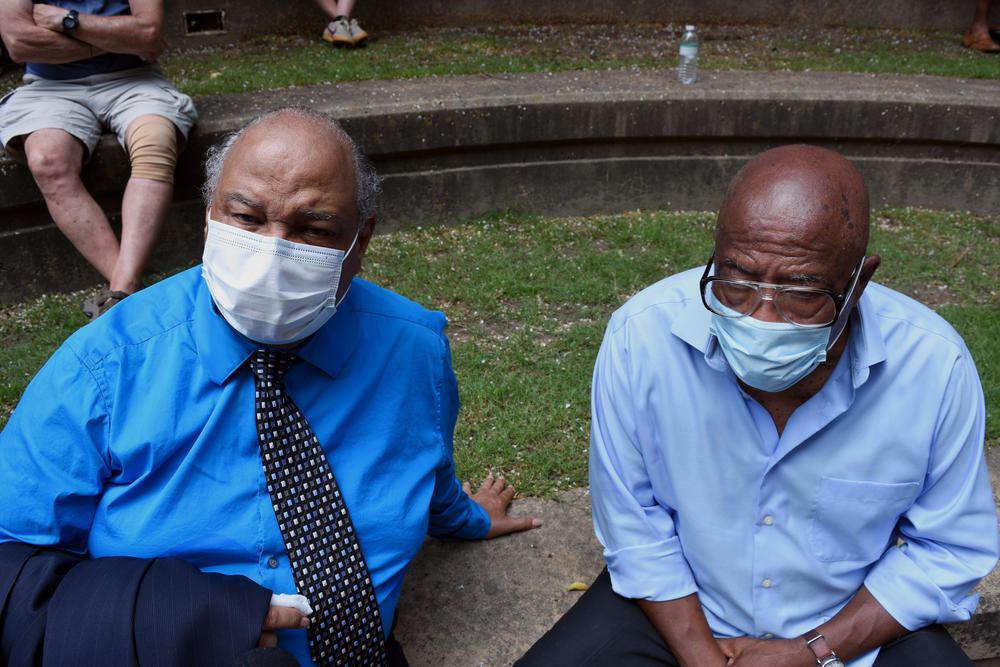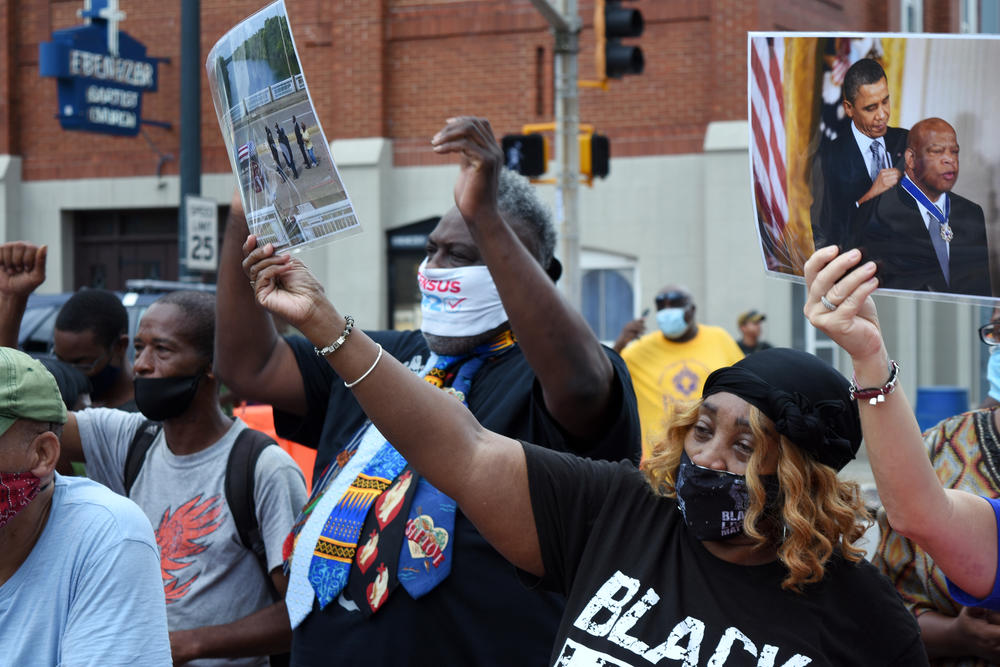
Caption
Les Fonza and Gilbert Young were two of the hundreds that celebrated the life of John Lewis outside Ebenezer Baptist Church. "I thought my little action just to come out here today would be appropriate for me... just to be here," Young said.
Credit: Stephen Fowler | GPB News



